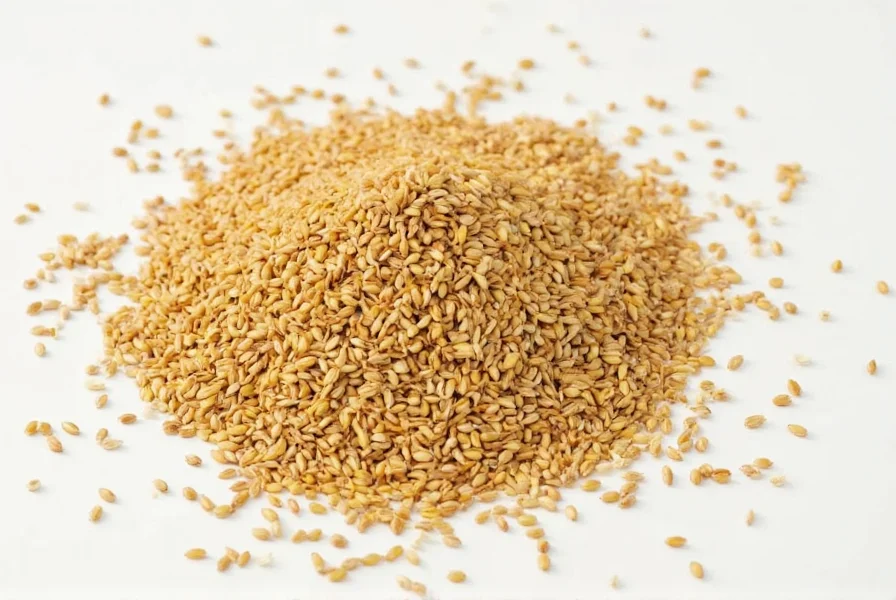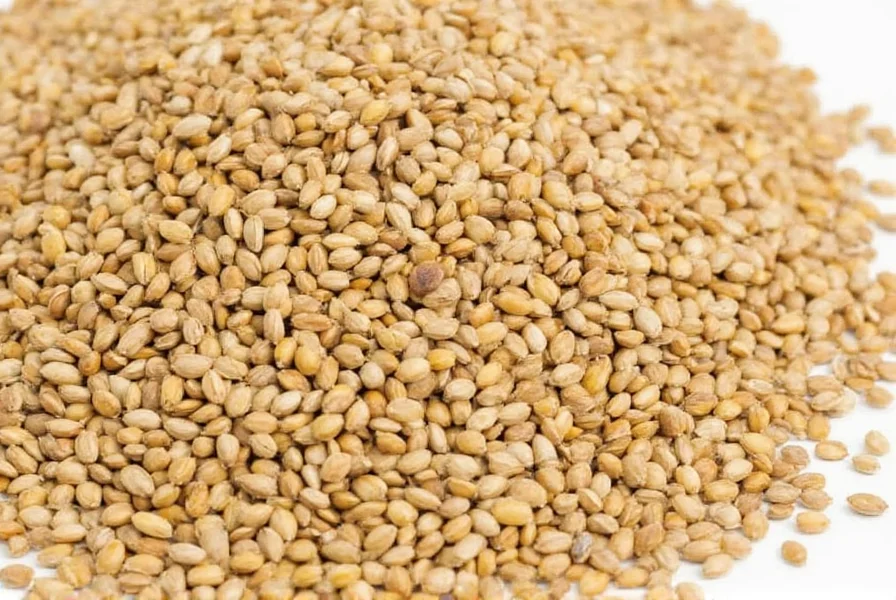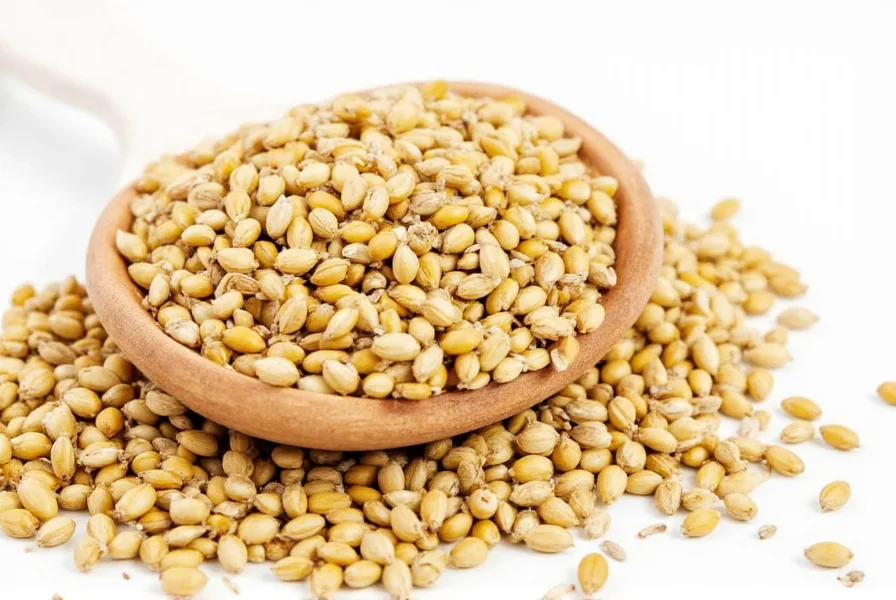Fenugreek seeds have been used for centuries in Ayurvedic and traditional medicine for hair care. Modern research confirms their effectiveness for addressing common hair concerns through natural compounds that nourish the scalp and strengthen hair follicles. This comprehensive guide explores the science-backed benefits and practical applications of fenugreek seeds for optimal hair health.
The Science Behind Fenugreek for Hair Health
Fenugreek seeds contain several bioactive compounds that directly benefit hair health. The high protein content (23-30%) provides essential building blocks for keratin production, while lecithin moisturizes and conditions hair strands. Most importantly, fenugreek contains nicotinic acid (vitamin B3) and saponins that stimulate blood circulation to the scalp, delivering more nutrients to hair follicles.
A 2020 study published in the Journal of Ethnopharmacology demonstrated that fenugreek extract significantly increased hair density and thickness in participants with mild to moderate hair loss after 8 weeks of regular application. The researchers attributed these results to fenugreek's anti-inflammatory properties and ability to extend the anagen (growth) phase of the hair cycle.
Top 5 Benefits of Fenugreek Seeds for Hair
| Benefit | Mechanism | Expected Results |
|---|---|---|
| Stimulates hair growth | Increases blood circulation to follicles | Noticeable new growth in 8-12 weeks |
| Reduces hair fall | Strengthens hair roots with proteins | 30-40% less shedding after 2 months |
| Treats dandruff | Antifungal and anti-inflammatory properties | Reduced flaking within 3-4 applications |
| Conditions hair | Lecithin moisturizes strands | Softer, shinier hair immediately |
| Prevents premature graying | Antioxidants combat oxidative stress | Slowed graying process over time |
How to Use Fenugreek Seeds for Hair: 4 Effective Methods
1. Basic Fenugreek Seed Hair Mask (Best for Hair Growth)
This traditional method delivers maximum benefits for hair growth and thickness. Natural remedies for hair growth with fenugreek don't get more effective than this simple preparation.
- Soak 3 tablespoons of fenugreek seeds in water overnight (8-10 hours)
- Grind the soaked seeds into a smooth paste using a blender
- Add 1 tablespoon of amla powder or yogurt for extra conditioning
- Apply the paste to your scalp and hair, focusing on thinning areas
- Leave on for 45-60 minutes before rinsing with cool water
- Use twice weekly for best results

2. Fenugreek Water Rinse (Quick Daily Treatment)
For those seeking fenugreek water for hair growth without the mess of a full mask:
- Boil 2 cups of water with 2 tablespoons of fenugreek seeds for 5 minutes
- Cool completely and strain the liquid
- Use as a final rinse after shampooing
- Gently massage into scalp for 2-3 minutes
- Leave in without rinsing for added benefits
- Apply daily for dandruff or every other day for general hair health
3. Fenugreek and Coconut Oil Treatment (For Dry, Damaged Hair)
This combination leverages fenugreek seed oil for scalp health while coconut oil penetrates the hair shaft:
- Soak 2 tablespoons fenugreek seeds overnight
- Grind into paste and mix with 2 tablespoons warm coconut oil
- Apply to scalp and hair, covering roots thoroughly
- Cover with shower cap and leave for 2 hours or overnight
- Wash out with mild shampoo
- Use once weekly for damaged hair restoration
4. Fenugreek Seed and Aloe Vera Gel (For Sensitive Scalps)
This gentle formulation works well for those with how to use fenugreek seeds for hair loss concerns but sensitive skin:
- Soak 1 tablespoon fenugreek seeds for 6 hours
- Blend with 3 tablespoons fresh aloe vera gel
- Apply to clean, damp scalp using fingertips
- Leave for 30 minutes before rinsing
- Use twice weekly to soothe irritated scalp while promoting growth

What to Expect: Timeline of Results
Understanding the realistic timeline prevents disappointment with homemade fenugreek hair treatment results:
- First 2 weeks: Reduced hair fall during washing/brushing, less scalp irritation
- 4-6 weeks: Improved hair texture, reduced dandruff, less breakage
- 8-12 weeks: Visible new hair growth along hairline and part line
- 3-6 months: Significant improvement in hair density and thickness
Consistency is crucial—skipping applications delays results. Track progress with monthly photos under consistent lighting.
Safety Considerations and Potential Side Effects
While generally safe, consider these precautions for fenugreek seed hair mask recipe preparation:
- Perform a patch test before first use to check for allergic reactions
- Avoid if pregnant or breastfeeding (fenugreek can affect hormone levels)
- Don't leave paste on longer than 60 minutes to prevent protein overload
- Rinse thoroughly to avoid seed residue that can make hair look dull
- Discontinue use if experiencing scalp redness, itching, or irritation
Fenugreek vs. Commercial Hair Growth Products
When comparing how fenugreek strengthens hair follicles to commercial treatments:
- Natural approach: Fenugreek works gradually without harsh chemicals
- Cost-effective: Costs pennies per treatment compared to $30-$100 products
- Safety profile: Fewer side effects than minoxidil (which can cause scalp irritation)
- Multi-benefit: Addresses multiple concerns (growth, dandruff, conditioning) simultaneously
- Limitation: Slower results than pharmaceutical options
For best outcomes, combine fenugreek treatments with a healthy diet rich in biotin, iron, and protein. Remember that scientific evidence for fenugreek hair benefits supports its use as part of a comprehensive hair care routine, not as a standalone miracle solution.
Frequently Asked Questions
How long should I leave fenugreek paste on my hair for best results?
Leave fenugreek paste on your hair for 30-60 minutes. For sensitive scalps, start with 20 minutes and gradually increase. Never leave it on overnight as this can cause protein overload, making hair brittle. The optimal time is 45 minutes, which allows sufficient absorption of nutrients without drying out your hair.
Can I use fenugreek water daily for hair growth?
Yes, you can use fenugreek water as a rinse daily if addressing dandruff or severe hair fall. For general maintenance, every other day is sufficient. Daily use is safe because the concentration is lower than the paste method. Many users notice reduced hair fall within 2-3 weeks of consistent daily rinsing, making it one of the most accessible natural remedies for hair growth with fenugreek.
Does fenugreek really help with hair regrowth for bald spots?
Fenugreek can help with mild to moderate hair thinning but has limited effectiveness for completely bald areas. Clinical studies show it works best for early-stage hair loss by strengthening existing follicles and stimulating dormant ones. For noticeable improvement in bald spots, combine fenugreek treatments with other approaches like scalp massage and proper nutrition. Results typically appear after 3-4 months of consistent twice-weekly application.
How should I store prepared fenugreek paste for hair?
Store prepared fenugreek paste in an airtight container in the refrigerator for up to 3 days. For longer storage, freeze in ice cube trays and thaw individual portions as needed. Freshly prepared paste is always most effective, as the active compounds degrade over time. Never store at room temperature for more than 6 hours to prevent bacterial growth in your homemade fenugreek hair treatment.
Can I mix fenugreek with other ingredients for enhanced hair benefits?
Absolutely. Combining fenugreek with complementary ingredients creates synergistic effects. For hair growth, mix with amla powder or onion juice. For dry hair, add coconut or almond oil. For dandruff, incorporate tea tree oil (5-6 drops per application). For added shine, blend with honey. These combinations address specific hair concerns while leveraging how fenugreek strengthens hair follicles through multiple pathways.











 浙公网安备
33010002000092号
浙公网安备
33010002000092号 浙B2-20120091-4
浙B2-20120091-4